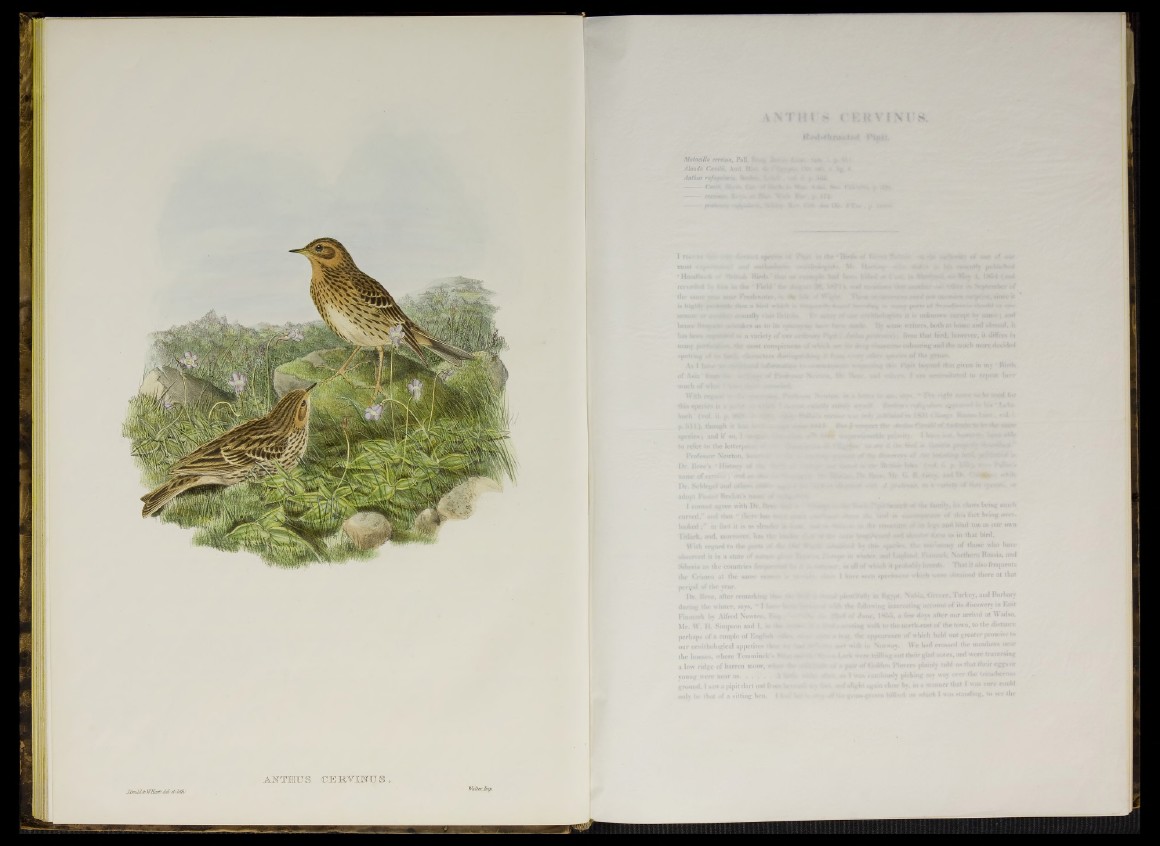
JGouLd/tiWEart' debebTith'
AWTTTTT S CE EVIHTT S .
TVaUerJrnp.
MotaciUa
Alauda C<
Antkus ni
carved," and that “ there km .i-.A, m r f «few fact being overlooked
tit fart it is as dcndr* a? *?••***- •<?.*-• ■■: ■ . rt;» Mrm'Sitr*1 ■»<’ it* it-irs Mid hind toe as our own
Titlark and moreover lias fk? i ir.-iv•■ -s ■-•«* ¿wwi (SBUShw ¿trtQ jis- in th a t bird.
< vwvii;'--' kt tfei* «Miwries, « te t*^Ww«y of those who have
observed it in a state of nitforr ... . -;. .. m winter, 'jnij fiwttwk, Northern Russia, and
Silseria a» the countries 5:’i o .: W ■«%" >*\- r m ni) of which it proteiMt hrcrdv That it also frequents
tlie Crimea at the same li-can-r .:.iX., ..... j ¡=.ive ^ $wdw<*t> -“»Inch w t obtained there at that
Dr. Hire after rcmnrking ■ K- t»--- j •• in Egypt, Nubia, Greece, Turkey, aud Barbary
during the winter says, “ I I«-".- ■ - ••• . ■■■>>. the following interesting account of its discovery in East
Fimrwrk bv Alfred Newton, ¡v TUttd of June, 1H55, a few days after our arrival at Wad so,
Mr. \V. H. Simpson and 1, in tfK &
perhaps of a couple o f EngTwh sjfi • -•* hug the appearance of which held out greater promise to
our ornithological appetites than
the houses, where Temminek - ■■«-••.•' S■•. • f ju i were trilling out their glad notes, and were traversing
a low ridge o f barren moor, v, . •- |
rZrfj^pT. dar t r;..;,'. C C - Z 2 Z ! ^ Z «JS
o n l y he iKit of a sitting hen. I hw* % ? ’ ■>■■■-• .rff n * grass-grown Hillock on which i « a? standing, to see the